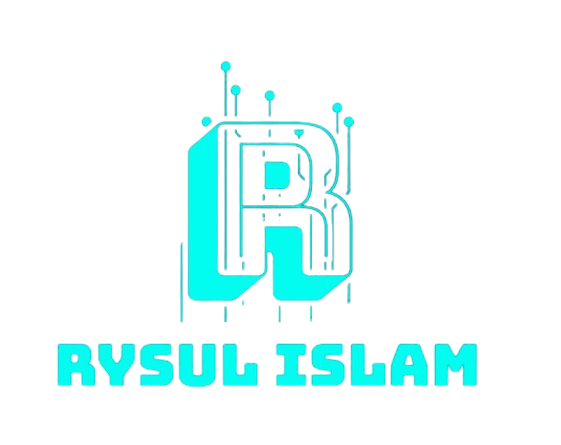
The Rise of No-Code and Low-Code: Is Traditional WordPress Development Changing? 🛠️🚀
Introduction:
In recent years, the no-code and low-code movement has been transforming the way websites and applications are built. For WordPress developers, this shift raises an important question: Is traditional WordPress development changing? With no-code and low-code platforms becoming more popular, are developers still needed to create WordPress sites, or can anyone build a fully functional website without writing a single line of code?
In this article, we’ll explore how the rise of no-code and low-code tools is impacting WordPress development, and what it means for developers and website owners alike. 💻🌍
1️⃣ What Are No-Code and Low-Code Platforms for WordPress?
1.1 No-Code Platforms for WordPress
No-code platforms allow users to create websites using a visual interface, without any coding knowledge. For WordPress, no-code tools like Elementor, Beaver Builder, and Divi offer drag-and-drop functionality that enables anyone to design and build a website with ease.
These tools come with pre-built widgets, templates, and design elements, making it simple for users to create highly customizable websites without needing to dive into the HTML, CSS, or PHP that typically powers WordPress themes.
1.2 Low-Code Platforms for WordPress
Low-code platforms offer a bit more flexibility by enabling users to add custom code if needed while still leveraging visual interfaces for faster development. Platforms like WPBakery and Gutenberg are good examples of low-code tools in the WordPress ecosystem.
These platforms allow developers to combine the ease of no-code tools with the power of custom coding when needed, enabling more control over site functionality and design. 🎨💻
2️⃣ Why Are No-Code and Low-Code Platforms Changing WordPress Development?
2.1 Faster Development and Reduced Costs
No-code and low-code platforms are significantly reducing the time and cost associated with WordPress development. For business owners and non-developers, these tools offer an easy way to launch a site quickly, without hiring a developer or spending months on custom builds. 🕒💸
For developers, using no-code tools can speed up the process of creating client sites, making development faster and more efficient. By leveraging pre-built design templates and widgets, developers can focus on more advanced functionality and customization.
2.2 Empowering Non-Developers
No-code tools allow entrepreneurs, small business owners, and marketers to take control of their website’s creation and management. They can build fully functional WordPress websites without relying on developers, opening up new opportunities for citizen developers.
This is especially valuable for businesses that need to make frequent updates to their sites but don’t have the budget or technical knowledge to hire a developer every time. 🚀
2.3 Simplifying Maintenance and Updates
With the simplicity of no-code tools, website maintenance and updates are more manageable for non-technical users. WordPress site owners can add or modify content, design elements, and even functionality using simple visual tools without touching the code. This autonomy is appealing to businesses and individuals who want to keep their sites fresh without needing to hire developers for every update.
3️⃣ The Impact of No-Code and Low-Code on Traditional WordPress Development
3.1 Increased Demand for WordPress Developers with New Skills
While no-code and low-code tools empower non-developers, there is still a high demand for skilled WordPress developers who understand the inner workings of WordPress. These platforms are often limited in terms of advanced functionality, and developers are needed to customize sites, create unique themes, or develop plugins that extend WordPress’s core capabilities.
In fact, the rise of no-code and low-code solutions is pushing developers to become more versatile. WordPress developers are now expected to:
- Know how to customize no-code tool outputs
- Integrate advanced features like custom post types, advanced custom fields (ACF), and third-party APIs
- Optimize site performance and ensure security
3.2 Changing Roles for Developers
The role of a WordPress developer is evolving. Instead of spending time on every design element and layout, developers are now focusing on:
- Custom development for unique features
- Theme development for high-quality, customizable templates
- Integrating no-code/low-code tools with other advanced functionality
- Site optimization and security, ensuring that sites built on no-code platforms are high-performing and safe
This shift is creating new opportunities for developers to specialize in integration, performance optimization, and advanced customization of WordPress sites that leverage no-code and low-code platforms.
3.3 More Collaboration Between Developers and Non-Technical Teams
As no-code tools become more mainstream, we’re seeing greater collaboration between developers and non-technical teams like designers and content creators. With no-code tools empowering these teams to build websites independently, developers can focus on the more technical aspects, like creating complex backend functionality, implementing custom integrations, or improving site performance.
This collaboration ensures faster delivery times and more efficient workflows while maintaining the flexibility to incorporate advanced development as needed.
4️⃣ Challenges and Limitations of No-Code and Low-Code in WordPress
4.1 Customization Limitations
While no-code and low-code platforms are great for quick website builds, they do have their limitations when it comes to deep customization. Complex features, advanced functionality, or unique design elements often require manual coding to achieve the desired result. 🖥️
Some features that are difficult or impossible to implement using no-code tools include:
- Highly customized theme designs
- Advanced data management
- Custom workflows or business logic
4.2 Scalability Concerns
No-code and low-code platforms work well for small to medium-sized projects, but they may not be suitable for large-scale websites that require custom infrastructure, complex workflows, or scalability. As websites grow in complexity, there may come a time when no-code platforms can’t handle the demands, requiring a shift back to traditional WordPress development.
4.3 Security and Performance
While no-code tools make development easier, they don’t always offer the same level of security and performance optimization as custom-built solutions. Developers still need to ensure that no-code-built websites are secure and performant, by integrating proper security measures, caching, and optimization techniques.
5️⃣ The Future of WordPress Development: No-Code, Low-Code, and Traditional Development
5.1 Hybrid Development Approach
The future of WordPress development seems to be a hybrid model, combining no-code tools for rapid prototyping and faster builds with traditional development for customization and scalability. Developers will likely focus on integrating no-code tools with advanced custom solutions, creating a seamless workflow between both approaches.
5.2 Continued Importance of Developer Expertise
Although no-code platforms are democratizing web development, the need for skilled WordPress developers isn’t going away. Instead, developers will need to adapt and specialize in leveraging no-code platforms while offering their expertise for more complex, custom projects.
5.3 Increased Demand for Site Optimization and Integration Experts
As more businesses turn to no-code solutions, there will be an increased demand for developers who can:
- Optimize no-code-built sites for performance and speed
- Integrate no-code tools with third-party services and custom APIs
- Provide ongoing maintenance and security for sites
Conclusion:
The rise of no-code and low-code platforms is undoubtedly reshaping the landscape of WordPress development, offering faster, more affordable ways to build websites. However, traditional web development skills are far from obsolete. Developers will continue to play a crucial role in handling advanced customizations, scalability, and integration, ensuring that websites built on no-code tools remain secure, performant, and highly functional.
In the end, no-code and low-code platforms are tools that can empower both developers and non-developers, but a hybrid approach combining ease of use and custom development will likely become the future of WordPress development. 💡✨
🔗Hire Me:
📌Fiverr- https://rysulislam.com/responsivewebdesign
📌Upwork- https://www.upwork.com/freelancers/rysulislam
🔗Portfolio: https://www.behance.net/rysulislamriak
🔗My Services: https://rysulislam.com/project
🔗Book Now: appt.link/meet-with-rysul-islam-c4VgTgEY/rysulislam
Suggested Hashtags:
#NoCode #LowCode #WordPressDevelopment #WebDevelopment #NoCodeWordPress #LowCodeWordPress #WebDesign #WordPressDevelopers #FutureOfDevelopment #TechTrends #WebDev2024




